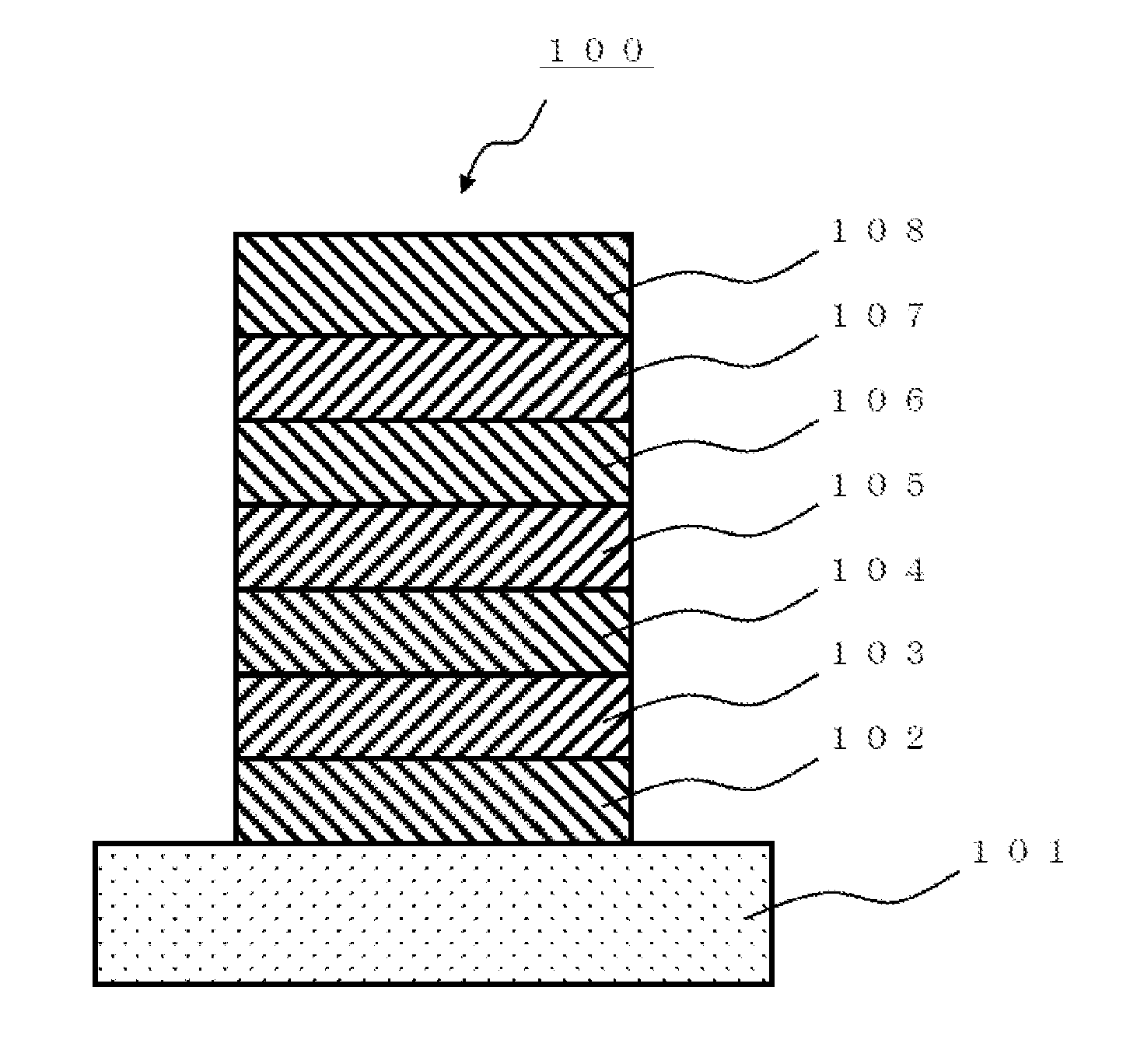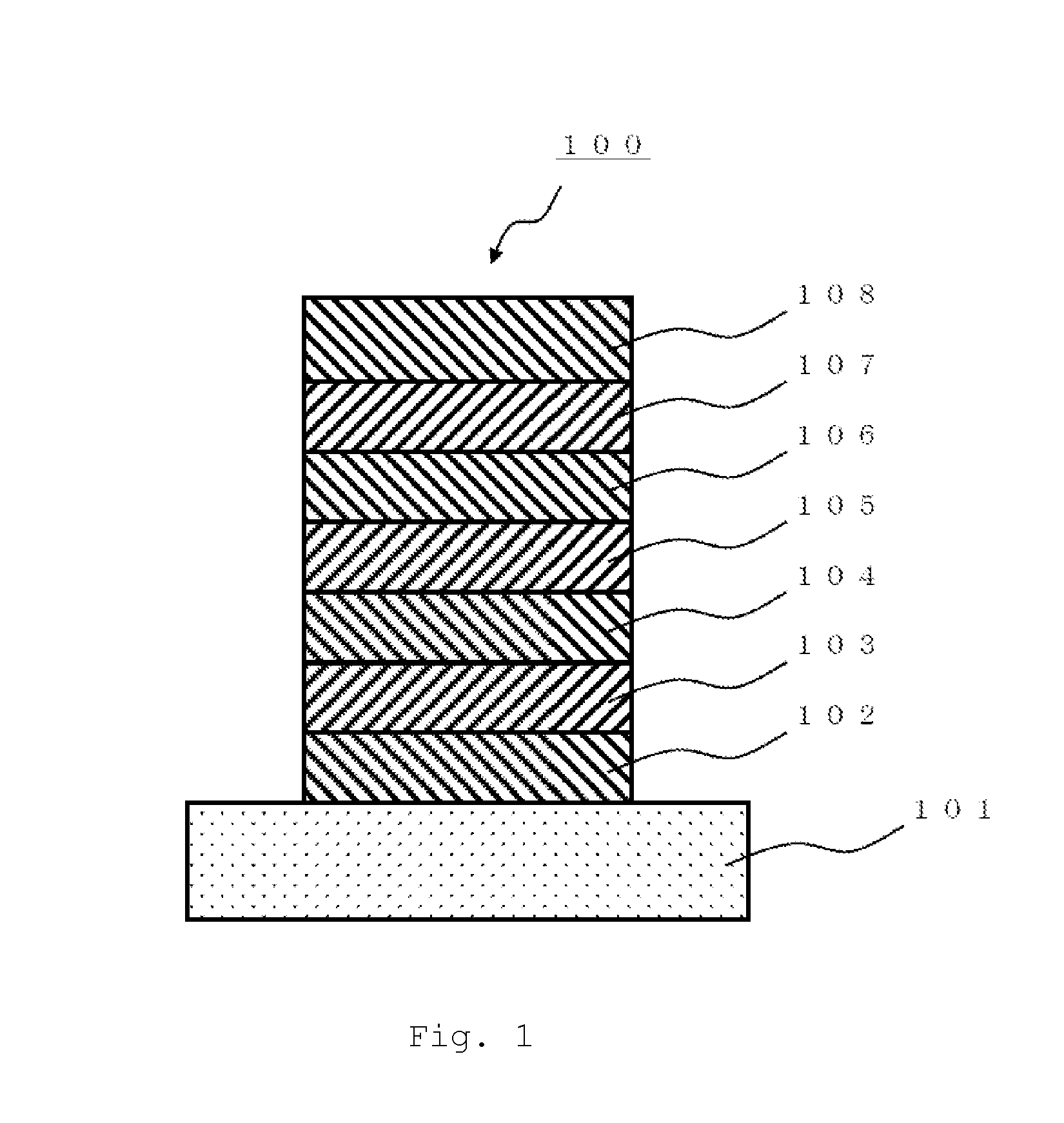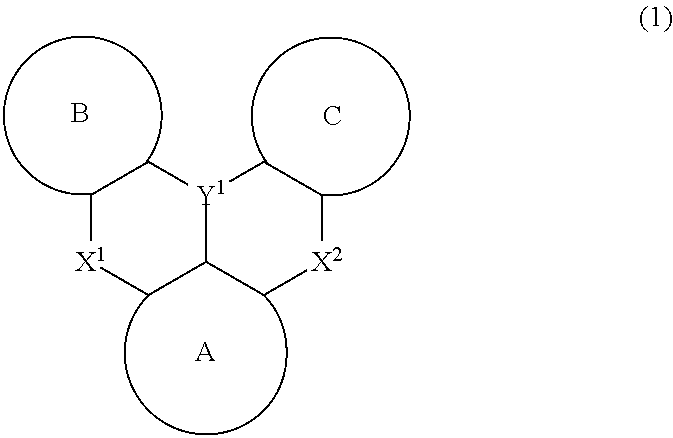Polycyclic aromatic compound
- Summary
- Abstract
- Description
- Claims
- Application Information
AI Technical Summary
Benefits of technology
Problems solved by technology
Method used
Image
Examples
examples
[0279]Hereinafter, the present invention will be explained more specifically by way of Examples, but the present invention is not intended to be limited to these. First, Synthesis Examples of polycyclic aromatic compounds are described below.
Synthesis Example (1)
Synthesis of 5,9-dioxa-13b-boranaphtho[3,2,1-de]anthracene
[0280]
[0281]First, a 1.6 M n-butyllithium hexane solution (0.75 ml) was introduced at 0° C. into a flask containing diphenoxybenzene (0.26 g) and ortho-xylene (3.0 ml) in a nitrogen atmosphere. After the contents were stirred for 30 minutes, the temperature was increased to 70° C., and the mixture was further stirred for 4 hours. Hexane was distilled off by heating and stirring the mixture at 100° C. under a nitrogen gas stream, and then the mixture was cooled to −20° C. Boron tribromide (0.114 ml) was added thereto, and the mixture was stirred for one hour. The temperature of the mixture was raised to room temperature, the mixture was stirred for one hour, subsequent...
synthesis example (
48)
Synthesis of 3,6,8,11-tetraphenyl-5,9-dioxa-13b-oxophosphanaphtho[3,2,1-de]anthracene
[0541]
[0542]m-Chloroperbenzoic acid (0.404 g, 77 wt %, 1.79 mmol) at 0° C. was added to the compound represented by the above formula (1-1251) (1.12 g, 1.79 mmol) and dichloromethane (150 mL), and the mixture was stirred at room temperature. After 5 hours, m-chloroperbenzoic acid (0.674 g, 77 wt %, 0.391 mmol) was added thereto at 0° C., and the mixture was stirred at room temperature. After 16 hours, a saturated solution of sodium sulfite (10 ml) and water (40 ml) were added thereto, and the mixture was stirred at room temperature. Insoluble materials were removed by filtration, a dichloromethane layer was separated, and then the aqueous layer was extracted with dichloromethane. The organic layers thus obtained were combined and concentrated, and then the combined organic layer was subjected to a silica gel short pass column using dichloromethane and dichloromethane / ethyl acetate=1 (volume ratio...
example 1
Element Using Compound (1-176) as Dopant Material of Light Emitting Layer
[0550]A glass substrate (manufactured by Opto Science, Inc.) having a size of 26 mm×28 mm×0.7 mm, which was obtained by forming a film of ITO having a thickness of 180 nm by sputtering, and polishing the ITO film to 150 nm, was used as a transparent supporting substrate. This transparent supporting substrate was fixed to a substrate holder of a commercially available vapor deposition apparatus (manufactured by Showa Shinku Co., Ltd.), and a vapor deposition boat made of molybdenum and containing HI, a vapor deposition boat made of molybdenum and containing HAT-CN, a vapor deposition boat made of molybdenum and containing HT, a vapor deposition boat made of molybdenum and containing BH1, a vapor deposition boat made of molybdenum and containing compound (1-176) of the present invention, a vapor deposition boat made of molybdenum and containing ET2, a vapor deposition boat made of molybdenum and containing ET1, a...
PUM
 Login to View More
Login to View More Abstract
Description
Claims
Application Information
 Login to View More
Login to View More - R&D
- Intellectual Property
- Life Sciences
- Materials
- Tech Scout
- Unparalleled Data Quality
- Higher Quality Content
- 60% Fewer Hallucinations
Browse by: Latest US Patents, China's latest patents, Technical Efficacy Thesaurus, Application Domain, Technology Topic, Popular Technical Reports.
© 2025 PatSnap. All rights reserved.Legal|Privacy policy|Modern Slavery Act Transparency Statement|Sitemap|About US| Contact US: help@patsnap.com



